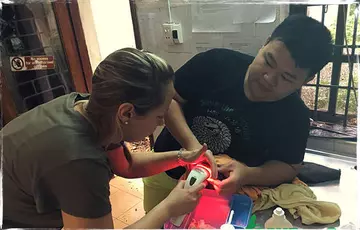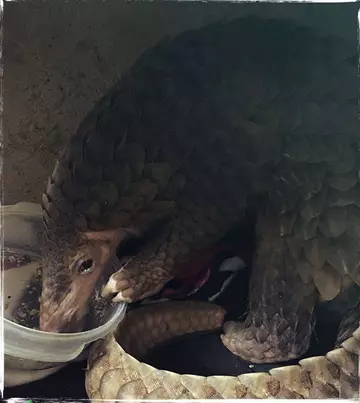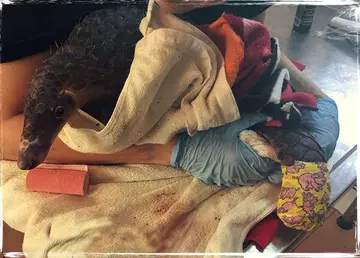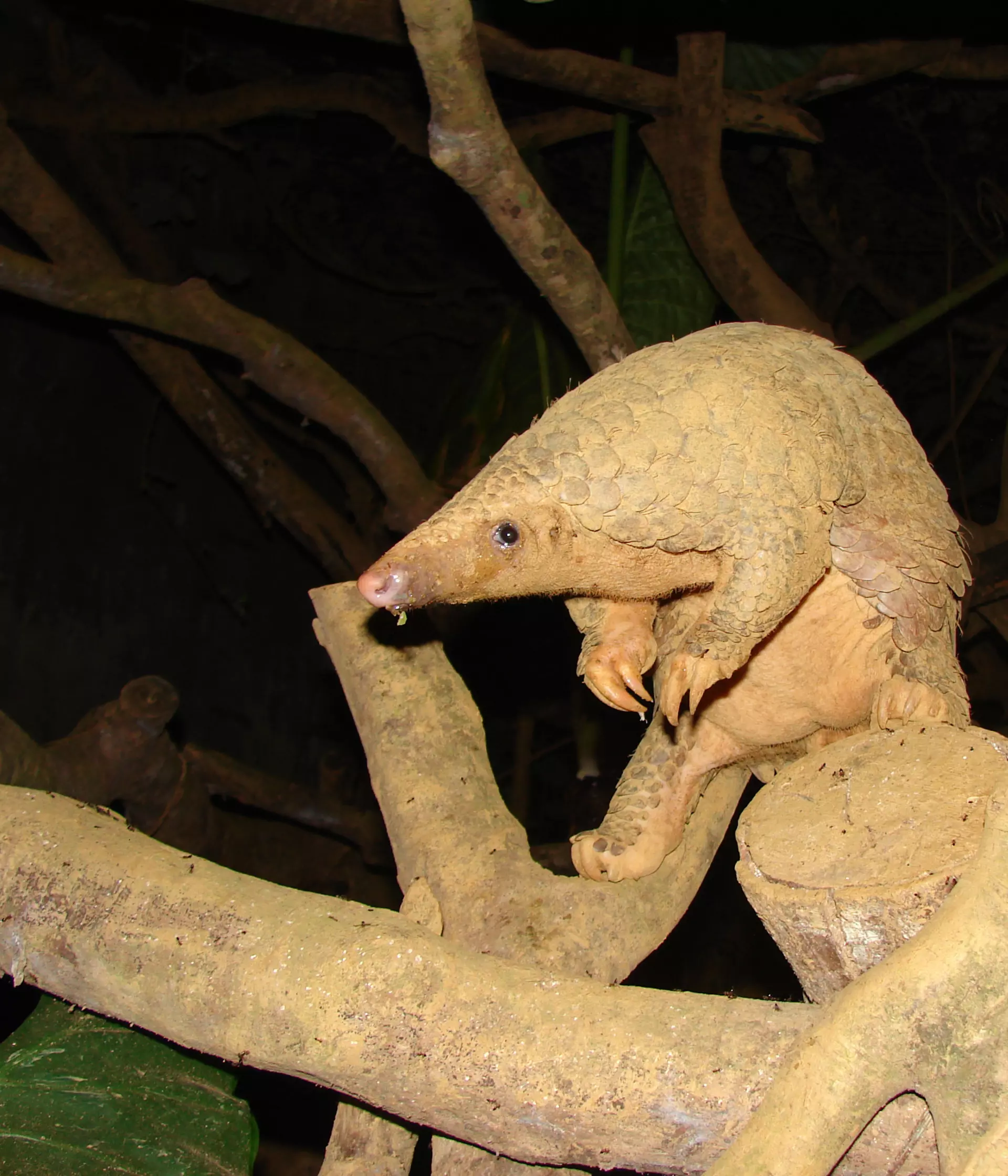
ZSL senior veterinary nurse Sophie Sparrow tells us about her time at the Save Vietnam’s Wildlife centre in Cuc Phuong National Park, Vietnam, to help pangolins rescued from traffickers.
I don’t think you ever forget the first pangolin you see. These scaly anteaters are such unique animals. They are also thought to be the most trafficked mammal in the world – who wouldn’t want to help them?
I visited a sanctuary in Vietnam that looks after two Asian pangolin species – the Chinese and Sunda pangolins – rescued from traffickers.

The world's most trafficked mammal
Illegal international trade affects pangolins across Vietnam and Laos, as well as all over Africa, with both live animals and body parts being transported internationally. Pangolin scales are sought after in traditional Chinese medicine and their meat is eaten as a delicacy in China and Vietnam.
The trip came about thanks to a grant that allows ZSL employees to visit a worldwide conservation project of their choice. I’d never seen a real pangolin before, but I heard about the sanctuary from colleagues, and we all wanted to help.

Veterinary nurses don’t exist in Vietnam, so I wanted to show them how the role could provide a link between keepers and vets. Pangolins are often critically ill when seized from traffickers. Many don’t survive, but those that do are brought to the centre. As soon as I saw them, I realised it was going to be a tough trip.
Many had horrific tail wounds caused by the abrasive nets used by poachers, or skin infections caused by sitting in their own waste. Sometimes vets have to amputate parts of their tails.
Pangolin patients
Pangolins are not the easiest of patients. They’re very strong, so once they’ve curled up into a defensive ball, that’s it! Because of their armoured scales, bandages tend to slip off, and injections are tricky because you need to get the needle between the scales.
But the vets are experts – they’ve worked with pangolins for so long, they know instinctively how best to treat them.

Lots of medical items aren’t readily available in the region – even bandages. Sanitary towels or tampons are often used to dress wounds, which was a first for me!
The sanctuary is ever-developing, with quarantine areas, a bio-secure unit and veterinary room, and new facilities are being built all the time.
Some of the equipment I took with me gave them some new treatment options, including a Photizo light therapy machine. This small, handheld device stimulates cell regeneration and helps wounds to heal. One pangolin had an infected wound where part of its tail was amputated after being injured by a snare, and the vets were thinking about amputating the rest.
After 10 days of using the machine, the infection had cleared and the wound was healing nicely. The company that loaned me the machine was so pleased to hear about the results, it asked me to give it to the sanctuary. The vets’ responses when I told them they could keep it were incredible – they were jumping around with excitement.

Making a difference
I helped with a lot of day-to-day tasks: giving medication and eye drops, taking blood samples and wound care – anything a veterinary nurse would do.
I was also able to do minor surgery on a pangolin with an abscess deep between its tail scales. Guided by the vet, I removed two scales and carefully opened and drained the abscess.
I wanted to show what a difference a veterinary nurse can make – and I’m delighted that they have now employed a veterinary technician (the US equivalent of the role). There are still huge numbers of pangolins being poached and killed, and I’m really proud that I’ve achieved something in the fight to help them.
